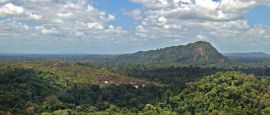Surinam Health Care and Vaccinations
| Title | Special precautions |
|---|---|
| Diphtheria |
Sometimes |
| Hepatitis A |
Yes |
| Malaria |
Sometimes |
| Rabies |
Sometimes |
| Tetanus |
Yes |
| Typhoid |
Sometimes |
| Yellow Fever |
Yes |
Health insurance is strongly recommended. Medical care is limited: there is only one emergency room in Paramaribo and there are few hospitals in outlying areas.
Mains water is normally chlorinated and, whilst relatively safe, may cause mild abdominal upsets. Bottled water is available. Drinking water outside main cities and towns is likely to be contaminated and sterilisation is considered essential. The Melk Centrale (Government Dairy Company) sells pasteurised milk but otherwise milk is unpasteurised and should be boiled. Powdered or tinned milk is available and is advised. Avoid dairy products which are likely to have been made from unboiled milk. Only eat well-cooked meat and fish, preferably served hot. Vegetables should be cooked and fruit peeled.
Avoid swimming and paddling in fresh water; swimming pools which are well chlorinated and maintained are safe. There is a high prevalence of HIV/AIDS. Vaccinations against tuberculosis and hepatitis B are sometimes recommended.
Do you have any Feedback about this page?
© 2026 Columbus Travel Media Ltd. All rights reserved. No part of this site may be reproduced without our written permission, click here for information on Columbus Content Solutions.








 You know where
You know where